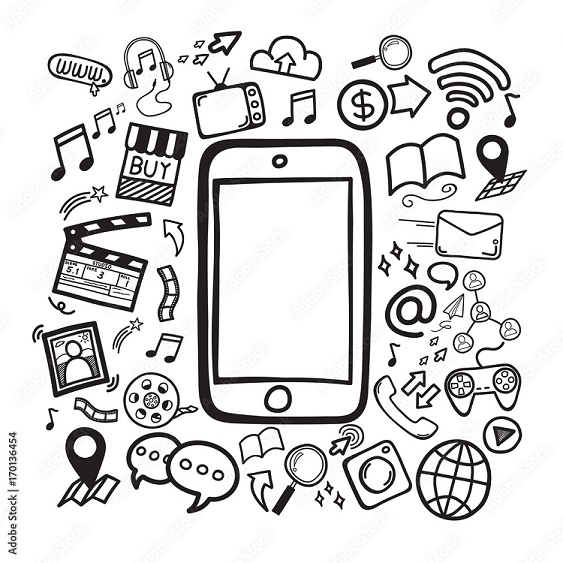Why it is harder to break bad phone habits in 2025?
Engineered Dependency or What?

Compiled By
Edwin Murimi
19-Jan-2025
Smartphones have become an integral part of modern life, but our dependence on them is not without consequences. Breaking bad phone habits has always been a challenge, but in 2025, this task seems harder than ever. Here are five key reasons why:
No. 1
We Are Dependent on Technology (Believe It or Not)
Technology is no longer just a convenience; it’s a necessity. From communicating with loved ones and everyone else, to self-improvement, to entertainment, to managing finances, to accessing essential services like healthcare and education, our lives are deeply intertwined with our devices. This reliance creates a strong habit of always being connected, even when it’s not necessary.
In 2025, the rise of smart homes, wearable tech, and AI-driven tools has further blurred the line between convenience and dependence. It’s not just about checking your phone for messages; it’s about controlling your home, tracking your health, or navigating the world—all of which makes putting the phone down feel nearly impossible.

What do you do when everything nearly everything has been moved to the phone?
No. 2
Tech Is Designed to Tether Us (You Have to Buy Helpful Technology)
Modern technology is intentionally designed to capture and keep our attention. Apps and devices use advanced algorithms to predict and respond to our behaviour, creating a cycle of constant engagement. Features like infinite scrolling, push notifications, and personalized recommendations are crafted to make disengagement difficult.
Some addictive apps come factory-installed on your smartphone - with no option for direct uninstallation. For example a rather famous video sharing online platform (I won't say which one!). To uninstall such an app, you literally have to hack the system - via some not so easy to use tools.
Ironically, the very tools designed to help us manage our tech usage—like screen time trackers or focus apps—often require more engagement with our devices. In 2024 & beyond, the rise of paid productivity tools highlights a paradox: you have to invest in more technology to escape the grip of technology – how strange?

Youtube is free, WhatsApp is free, FB is free, etc
No. 3
Free Stuff on Smart Phones
The allure of free content on our phones has only grown stronger. Whether it’s social media platforms, video streaming apps, or gaming, free options come with a cost—our attention. These platforms monetize engagement, meaning they’re optimized to keep you hooked for as long as possible.
In 2025, the proliferation of free AI-driven entertainment—like personalized virtual influencers and interactive content—has taken this to the next level. The endless availability of free content creates a significant barrier to breaking bad habits because there’s always something new and enticing to consume.
No. 4
Life Problems & Mental Challenges
Smartphones often serve as coping mechanisms for stress, anxiety, and boredom. When life becomes overwhelming, it’s easy to turn to your phone for a quick escape. This dependency is especially pronounced in 2025, where global uncertainties and mental health challenges have heightened stress levels for many.
Furthermore, the availability of mental health apps and online communities, while beneficial, can sometimes reinforce phone dependence. Instead of addressing underlying issues, we may find ourselves trapped in a cycle of temporary relief and prolonged screen time.
No. 5
Social Behavior & New Norms
Phones are not just tools; they’re social accessories. In 2025, societal norms around phone usage have made it even harder to break free. Whether it’s the expectation to respond instantly to messages or the pressure to maintain an online presence, our phones are deeply embedded in our social lives.
The rise of augmented reality (AR) and the metaverse has further intensified this phenomenon. Social interactions increasingly take place in digital spaces, making it harder to separate from devices without feeling disconnected from friends, family, or colleagues.

Fig 3: What do you do as a young person when everybody you happen to be hanging out with - is glued to their screens?